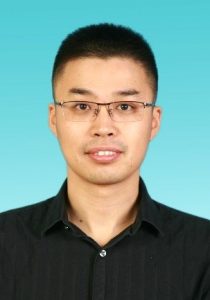Biography:
Prof. Ji is engaged in energy electrochemical research. As a corresponding author, he has published several academic papers in journals such as Science, J. Am. Chem. Soc., Angew. Chem. Int. Ed., Adv. Mater., with a total citation of over 13,000 and an H-index of 56. He has received the first prize in natural science from Anhui Province, the “Li Hua Yi” Chemical Innovation Award from the Chinese Chemical Society, the Electrochemical Society’s “Young Electrochemist Award,” the “Outstanding Mentor Award” from the Chinese Academy of Sciences, the “Outstanding Research President Award” from the USTC, and the Nano Research “Young Innovators Award.” His research achievements were selected as one of the “Top Ten Scientific and Technological Progress of Chinese Universities” by the Ministry of Education in 2020.
Research Interest:
Advanced anode materials for fast-charging and low-temperature lithium-ion batteries;
Sulfur cathode and lithium metal anode for high energy-dense lithium-sulfur battery.
What You Can Expect in the Project:
Exploring the interfacial electrochemistry of anodes:
The interfacial electrochemical behavior of electrode materials has a significant impact on the fast-charging and low-temperature performance of batteries. This is mainly reflected in the transport behavior of Li+ at the interface, including the de-solvation process of solvated Li+ and the diffusion process of Li+ at the interface. We will study the ion transport ability of different solid-state interfaces and correlate it with fast charging and low-temperature performance.
Exploring catalytic reactions in lithium-sulfur batteries:
Lithium-sulfur battery is highly anticipated due to its high energy density. However, the lithium storage reaction of sulfur is slow, and lithium polysulfide can dissolve in the electrolyte, leading to a short battery cycle life. By introducing a catalyst into the sulfur cathode, it can adsorb sulfide and catalyze the conversion reaction of sulfur. We will study the mechanism of different metal-based catalysts in catalyzing the conversion reaction, and guide the design of the cathode structure.
Desired skill and background:
Welcome students with academic backgrounds in materials science, applied chemistry, physical chemistry, and electrochemistry to join our research group.



